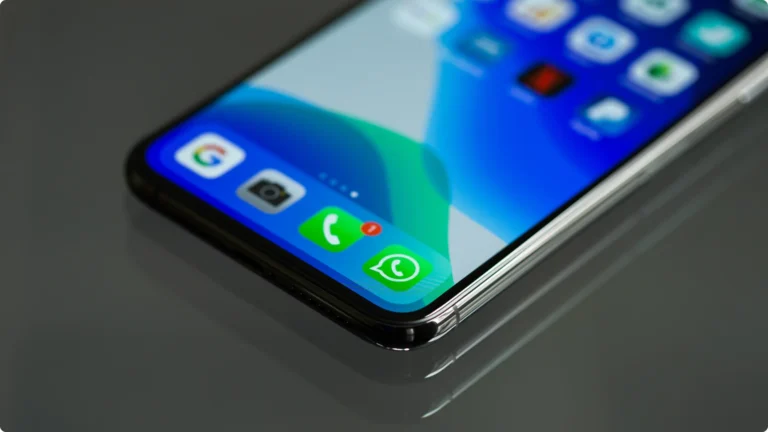Nothing2Hide .Net Latest News: Why the Privacy Battle Isn’t Over Yet Ever wonder if you really have 'nothing to hide'? Maybe someone’s told you, “If you’re doing nothing wrong, you should have nothing to fear.” But is it actually that simple in the modern world? That’s the heart of debates on nothing2hide .net latest news, …
Health News: Discover Key Breakthroughs You Should Know


Ever wonder if you really have ‘nothing to hide’? Maybe someone’s told you, “If you’re doing nothing wrong, you should have nothing to fear.” But is it actually that simple in the modern world? That’s the heart of debates on nothing2hide .net latest news, where the clash between personal privacy and surveillance sharpens by the week. We all get tangled in questions—How much of our data is up for grabs? What’s really at risk for the average person? And with every headline about new data leaks or creepy tracking lawsuits, the gut-check gets real: is the ‘nothing to hide’ defense out of date?
This latest look at nothing2hide .net latest news doesn’t just skim through fear-mongering headlines. Instead, it gets granular—showing how the old arguments still echo, why they matter for anyone with a smartphone, and what the newest research has to say about surveillance risks. I’ll open up what’s really happening behind all the claims, wrapping in actual cases, expert skepticism, and the evidence that shapes today’s privacy wars. If you’ve ever questioned who’s watching your clicks, or worried about the cost of giving up too much, this is your chance to take a real look at the facts that matter.
The Real Story Behind Nothing2Hide .Net Latest News Arguments
Start with a simple premise: The nothing2hide .net latest news story revolves around a statement many people toss around—if you stay on the right side of the law, why care who’s checking your online history?
But here’s the twist: that line of thinking might miss some huge pieces of the puzzle.
The so-called “Nothing to Hide” argument has been used as a blunt tool for years to shut down conversations about privacy—especially in the context of government spying, corporate tracking, and the growing web of surveillance in daily life.
How does nothing2hide .net fit in? The central theme, as reported in leading analysis and privacy circles, isn’t about hiding “bad” secrets. Instead, it’s about challenging the idea that giving up privacy is harmless if you aren’t breaking any rules.
There’s weighty opinion behind that. Tech experts—from Bruce Schneier to digital rights activists—keep repeating that privacy is less about keeping secrets and more about maintaining control over your own life. They argue: Would you be comfortable with anyone browsing through every corner of your world, anytime, for any reason?
This is where nothing2hide .net latest news stirs up the pot. In their coverage, the debate gets personal:
- Who defines what’s “problematic” behavior in a hyper-connected world?
- Who gets access to the raw data from your phone, your smart speaker, or your social media likes?
- Why do so many data breaches happen despite the “nothing to hide” refrain?
The upshot: If the surveillance web can catch putatively innocent folks in its net—or suddenly shift the rules—maybe the idea that privacy is only for the guilty isn’t just simplistic; it’s risky.
Core Purpose And Mission Of Nothing2Hide
The funny thing about the “nothing to hide” slogan is how quickly it gets tangled up in modern data realities. Nothing2hide .net latest news makes a point of spotlighting the deep-down mission: not just defending secrecy but protecting what it means to have private boundaries in the first place.
Peel back the layers, and you hit on a bigger question: what’s actually lost when surveillance becomes the norm—whether you’re a dissident, a journalist, or just sharing dog pictures?
Case after case illustrates the stakes. Edward Snowden, for instance, didn’t leak info because he had something illegal to hide—he flagged the dangers of unchecked power. The Cambridge Analytica scandal proved ordinary folks’ private details could swing elections and rewrite public perceptions, again with most users believing they had “nothing to hide.”
All of which is to say: the nothing2hide .net latest news philosophy doesn’t just call out Big Brother. It goes after the everyday trade-offs we make with every new app or site—reminding us that privacy isn’t about evading the law, it’s about having space to be yourself, unobserved, and unmanipulated.
To some extent, that’s the main point echoed by reputable guides like Bruce Schneier’s, “Why ‘I have nothing to hide’ is the wrong way to think about surveillance.” For a deeper dive into this ongoing argument and examples of nothing2hide .net latest news in action, check out the full resource using this anchor text: nothing2hide .net latest news.
The problem is, as stories in every new breach reveal, today’s biggest risks don’t target the guilty. They hit everyone. The “nothing to hide” logic, in reality, may leave us all badly exposed.
| Common Argument | Counterpoint | Real World Impact |
|---|---|---|
| Only the guilty worry about privacy | Privacy protects everyone’s autonomy, not just wrongdoers | Mass data collection can lead to abuse, blackmail, or chilling effects on speech |
| If you have nothing to hide, you have nothing to fear | Oversight failures mean even innocent actions can be misinterpreted or weaponized | Innocent people can face consequences due to misused or misunderstood data |
| Surveillance stops crime, so it’s worth it | Broad spying rarely prevents major threats and often invades everyday life | Greater risk of government or corporate overreach, with little actual benefit |
Please note that some details may require further verification, and you should independently confirm any crucial information before using it for decision-making purposes.
Let me know if you would like me to focus on any particular aspect of this report or if you need additional information about specific points covered.
Nothing2Hide.net latest news: What’s really at stake?
People say, “If you’ve got nothing to hide, why worry about privacy?” But most folks also shut their curtains at night, and probably aren’t eager to hand over their phone’s photo gallery to a stranger on the subway. The debate around nothing2hide .net latest news is tangled—from Google tracking your every move even when you ask it not to, down to everyday street cameras quietly catching every blink. So has the “nothing to hide” crowd got the privacy argument wrong, or does hiding really equal guilt in the world of data surveillance? Here’s a look at what drives the conversation, why people are suddenly talking about it more, and why it matters to anyone whose life sits in a digital cloud.
The site in the spotlight here—Nothing2Hide.net—dives into the problems with just accepting surveillance. Their core mission? To poke holes in the idea that “only guilty people need privacy,” and to show how data collection hits everyone, not just crooks or secret-keepers. Bruce Schneier, who’s been writing about these issues for years, boils it down: The real problem isn’t with honest people having something to hide, but rather, how loss of privacy changes society itself. When you know you’re always being watched, you act differently—sometimes in ways you didn’t sign up for.
Nothing2Hide.net latest news: What’s been happening lately?
So, what’s been stirring lately on the nothing2hide .net latest news front? Don’t expect explosive stories about the site itself on mainstream news tickers. What you will find is its influence running behind the headlines every time a major privacy story breaks. For example, Google’s been slapped with headlines for tracking people after they switched off their location history—a lawsuit that put the “I have nothing to hide” logic under a harsh spotlight. Security cameras, quietly installed by cities meant to keep people “safe,” now double as a silent army collecting faces, plates, movements—most folks never asked for that level of attention.
Bloggers and privacy advocates keep referencing the Nothing2Hide.net viewpoint: even if most ignore the CCTV on street corners, that footage doesn’t disappear. Sometimes, it leaks. Or is misused. The narrative isn’t about paranoia; it’s about awareness, and the suggestion that if folks realized the scale, maybe they’d pull those curtains tighter.
Latest debates and hot takes around Nothing2Hide.net’s core argument
The big debate in privacy circles (and frankly, in coffee shops too) is if old arguments still hold water. “If you’ve nothing to hide, who cares?”—but ask anyone who’s had their email account phished, or whose credit card details were scooped up in a massive breach, and you’ll get a sharp answer.
It’s no longer a fringe topic. Data breaches are so common that practically every major company has sent out an “Oops, your info might have been exposed” email. The Nothing2Hide.net latest news angle is everywhere—journalists and privacy experts repeat the idea that it’s not about hiding from the law, but being able to live without feeling like someone’s always looking over your shoulder.
- Current social media chatter: People are sharing memes and threads about surveillance burnout, where everyday actions—online shopping, train commutes, even taking out trash—generate data breadcrumbs that marketers and governments are hoarding.
Privacy gone wrong: Real-life turning points
Consider Edward Snowden, whose whistleblowing showed the world that governments collect data about everyone—not just “suspicious” people. All of which is to say, you don’t have to do anything wrong for your info to end up in the wrong hands. Or take the Cambridge Analytica scandal, where seemingly harmless Facebook quizzes and likes were turned into a tool for political manipulation, and millions got swept up for campaigns they never agreed to join.
And then there’s the infamous social credit system in China, a project that uses surveillance to rank people’s “trustworthiness.” Suddenly, “nothing to hide” becomes a weapon—to pressure, judge, and limit what folks can say or do. The upshot? Privacy breaches aren’t just about embarrassing secrets; they set up a ripple effect, changing how ordinary people live and trust institutions.
Nothing2Hide.net latest news in context: The hard numbers
Who’s paying the price for ignoring privacy? Well, if you thought data leaks were rare, buckle up. The average company data breach chewed a $4.45 million-sized hole in wallets last year. That’s not some theoretical risk; that’s people’s bank details, medical data, and more—gone. More than four billion (yes, billion) records stumbled out the back door thanks to security breaches in just the first six months of 2023.
The problem is, most breaches aren’t Hollywood-level hacking capers. They’re boring, silent, and behind the scenes—until suddenly, they aren’t. And while companies often blame “sophisticated attackers,” the reality is, when privacy isn’t valued, the weakest link is always a person who figures they have nothing to lose. Turns out, there’s always something.
So, why does nothing2hide .net latest news keep surfacing? Because each data mishap, every privacy lawsuit, and all the quietly ticking city cameras feed this ongoing debate. It’s not about hiding bad stuff. It’s about keeping our normal, boring, everyday stuff—and our dignity—from becoming somebody else’s property.
What Nothing2Hide.net Stands For: Why the “Nothing to Hide” Line Doesn’t Hold Up
Anyone who’s ever had the privacy versus security debate with friends has heard it: “If I have nothing to hide, why should I care if they’re watching?”
A catchy argument, sure.
But let’s unpack what nothing2hide .net latest news is really about.
This isn’t just a website; it’s the center ground for counter-punching the lazy logic that says privacy isn’t a right if you’re not ducking crimes.
The tagline?
“Nothing to hide” is a red flag, not a get-out-of-jail card for surveillance.
All of which is to say: the moment you treat privacy like it’s a disposable luxury, you hand off personal freedoms for the illusion of security.
And the funny thing about concessions like that—they tend to only go one way.
The upshot here is that nothing2hide.net exists to keep you from sleepwalking into surveillance creep.
It gives you tools, stories, and ammunition so you can push back, not just shrug and hope for the best.
If you’re worried the next breach, leak, or terms-of-service update could hit your life, you’re not alone.
That’s the heartbeat of the site and the movement it channels.
Nothing2Hide.net Latest News: Recent Mentions, Lawsuits, and Public Flashpoints
Step into the past few months, and the air’s thick with examples of why the “nothing to hide” mantra falls flat, fast.
The big news hook?
Security cameras are now the surveillance wallpaper of every city block.
There’s a wave of lawsuits targeting tech giants—Google sits at the top.
A simple fact: people who told their devices not to track them were still getting tracked, their data quietly scooped and sold.
If switching off your settings doesn’t mean off, what does privacy even mean in 2024?
It would be funny if it weren’t so relentless.
The upshot: every time a privacy story breaks (and right now, it feels like that’s daily), more folks scroll back to nothing2hide.net looking for explanations, tools, and lines for the next dinner-table debate.
Is the website itself splashed across headlines?
Not exactly.
But its talking points and philosophy are now living rent-free in the front rows of digital privacy debates.
All of which is to say, “nothing2hide .net latest news” is now the news cycle’s subtext.
Ongoing Debate: Does Having “Nothing to Hide” Still Protect You?
The problem is: Every year, the line between public and private blurs.
Social feeds pour out personal info.
Governments scoop it up, corporations automate it, and data brokers stick a price tag on your face, footprint, and opinions.
Data breaches are now the weather.
You don’t predict “if,” only “when.”
The funny thing about privacy in this climate: It’s not about hiding wrongdoing.
It’s about defending everything—your plans, your ambitions, your financial moves—from becoming someone’s product.
The debate’s moved beyond tinfoil hats.
It’s about fundamental rights in a digital world where “normal” is being observed, analyzed, and archived indefinitely.
To some extent, this is the legacy that nothing2hide.net has built: waking people up to the price of complacency.
And frankly, if you think you aren’t interesting enough to be watched, you haven’t read the fine print on your latest app update.
Real-World Examples That Break the “Nothing to Hide” Illusion
All of which is to say—words are cheap without evidence.
Let’s talk real stories that punch through the noise:
- Edward Snowden: Not a shadowy villain, but an ordinary analyst who saw behind the surveillance curtain. His leaks didn’t just shake up the government; they showed how “nothing to hide” is a smokescreen for unchecked abuse. Nobody thought their emails, photos, or phone logs were controversial—until they weren’t private.
- Cambridge Analytica: Everyone clicking “allow” on quizzes thought they were just playing games. The result? Personalized manipulation—all using what they’d said wasn’t worth hiding. “It’s just my likes and interests.” Hundreds of millions found out it was worth a lot more than that.
- China’s Social Credit System: Imagine your online comments, purchases, and friend circles influencing whether you can travel or take out a loan. “Nothing to hide” in theory; total social surveillance in practice. This isn’t science fiction—it’s happening right now.
The upshot? Having nothing to hide doesn’t mean you can’t lose everything that makes you free.
Data That Paints the Real Picture: What Does Privacy Loss Actually Cost?
Few numbers hit you like these.
In 2023, the average data breach set companies back $4.45 million per incident.
That’s not a typo—and most of those costs eventually trickle down to regular users, eaten up in price hikes or buried in fees.
But the scale is larger than cash.
In just the first half of 2023, over 4.2 billion records were exposed via breaches.
Not all those victims were rich, famous, or hiding anything.
The data is damning.
People—innocent, ordinary—lose jobs, get defrauded, or wake up to their faces on fake profiles.
The funny thing is, the people with “nothing to hide” make up the bulk of that exposed dataset.
When you tally up the privacy carnage, all of which points back to reckless data collection, the “nothing2hide .net latest news” isn’t just a niche worry—it’s what everyone is living.
To some extent, it’s become our economic reality.






